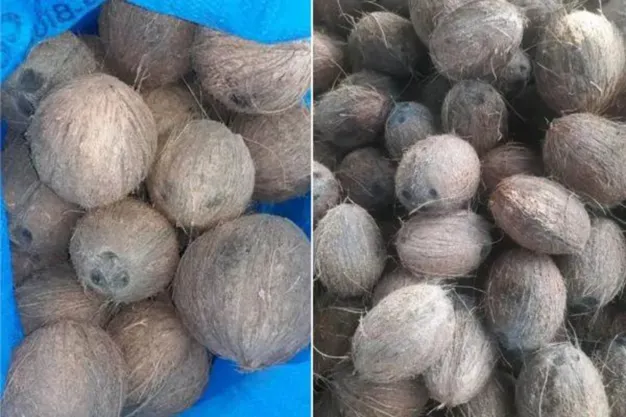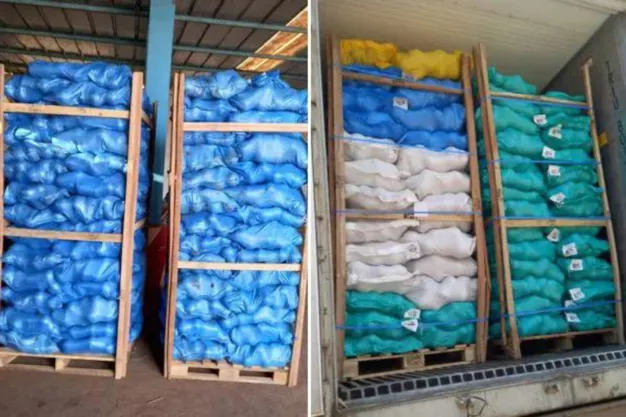The coconut season in Côte d'Ivoire is running throughout the year, with several harvests. According to Stéphane Djedji, manager of Bethlehem Commodities, this quarter's crop is slow to reach the market due to Ramadan and the start of the mango season.
Djedji says: "Production is following its normal course, with harvests every 4 months for hybrid varieties and every 5 months for the Grand Ouest Africain (GOA) variety. For our part, we are continuing to operate our 200-hectare fully organic coconut plantation. We are experiencing some difficulties in terms of production due to difficult climatic conditions and reduced rainfall. On the phytosanitary front, there's nothing to report and everything's going smoothly thanks to government support".

"However, we have seen, like every year, a slowdown in demand since March. This is due to three factors. Firstly, Ramadan is being celebrated around the world, which favors other crops and slows down our exports to Europe. Secondly, the start of the mango campaign in Côte d'Ivoire is taking up the efforts of growers, exporters, and packing stations, to the detriment of coconuts, given the profitability of mango. Finally, the continuing sanctions on Russia, which was an important market for us, make transport too costly and render this market virtually inaccessible".
During this quiet period for exports, Ivorian coconut growers turn to oil mills on the local market, according to Djedji. He explains: "Oil factories in Côte d'Ivoire absorb the broken and dried nuts we produce. We also focus on the West African markets, such as Mali, Senegal, and Burkina Faso, and we still manage to export a decent volume to Europe. As far as the European market is concerned, we are pleased to note that our exports are improving compared with the same period last season."

According to Djedji, "European customers have every interest in taking advantage of the low demand at this time of the year. Coconut prices are not fixed but change according to demand. Prices are lower at this time of the year and will rise rapidly after April. Therefore, this is the best time to buy Ivorian coconuts."
The grower continues: "The Netherlands, which is a redistribution platform in Europe, maintains satisfactory demand even during this period. We are also receiving more and more orders from France and the Middle East. Ivorian coconuts are convincing and build loyalty, provided we manage to penetrate markets for the first time. This is mainly because they are entirely organic, with no added fertilizers whatsoever. Also, we have desirable sizes, from A40 (550g-650g) and B50 (400g-549g), and even A35 (650-900g) in smaller volumes."
For more information:
Stéphane Djédji
Bethlehem Commodities
Tel: +225 05 05 89 91 62
Email: [email protected]
